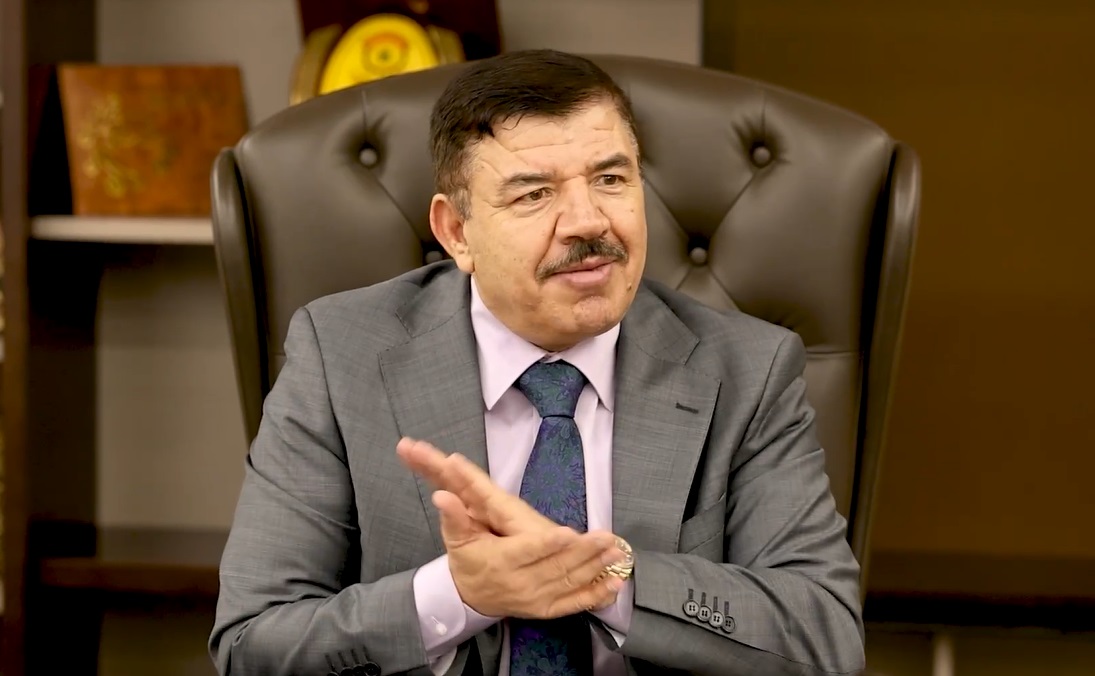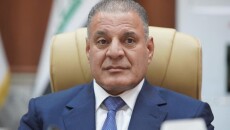Salahaddin provincial council, like Diyala, withdrew confidence in its chairman Adel Al-Sumaidaie in an emergency meeting and he has threatened to take legal action.
Nine out of 15 members of the Salahaddin council voted to remove the speaker after questioning him.
"The questioning session was held at the request of 10 members of the council, chaired by me, on several points," Mohammed Hassan Atiya, deputy speaker of the provincial council, told a news conference attended by KirkukNow.
The council's statement only mentioned Sumaidai's removal in a brief post on Facebook without disclosing the reasons for the questioning.
"The first session of the council ended with questioning the speaker and then another session was held and confidence was withdrawn by nine votes," Atiya said.
According to the Law on Unorganized Provinces in a Region No. 21 of 2008 – as amended, the council has the power to remove the council speaker and his deputy by an absolute majority at the request of one third of the members "for neglegence in the performance of his duties and responsibilities."
Adel Sumaidai, the ousted chairman of the Salahaddin provincial council, rejected the removal in a statement, describing it as "illegal and not met required conditions.”
"The civilian posts in the local governments are the result of a comprehensive agreement between the different political parties. Dictatorial measures cannot be taken by some members without taking into account the agreements, which may harm the political stability of all provinces," he said.
On October 29, the Diyala provincial council voted to remove Omar Krui, the speaker of the council, in an emergency session.
Al-Jamahir al-Watania (National Masses) coalition, which included a number of Sunni Arab and Kurdish parties, won the election and formed a local government with several other Sunni parties, including the Siyada (Sovereignty) and al-Hasim al-Watani (National Decisiveness) coalitions.
The provincial council of Salahaddin consists of 15 seats, four of which reserved for women, according to the population (over 1.6 million people) and based on the latest amendments to the electoral law of the Iraqi parliament and provincial councils.
The predominantly Sunni province of Salahaddin, about 135 kilometers north of the Iraqi capital, once home for Saddam Hussein, is under the control of Iraqi Security Forces ISF including the Shia-led paramilitary Popular Mobilization Forces PMF, known as al-Hashid al-Shabi.
"I have decided to go to court to prove the incorrectness of this illegal step and emphasize the importance of maintaining the legal framework and political agreements that guarantee the stability of the political process in the province. I trust the court.”
He was elected speaker of the council on February 4 by al-Hasim al-Watani list, as part of an agreement with the Jamahir Wataniyah coalition.
"Today's procedures were democratic and no one will be deceived by the system, and we call on the political parties not to interfere in the affairs of the council and we will decide the fate and know what the province needs," he said.
*This story has been produced as art of the "Budget is your Rights" initiative with support from the National Democratic Institute (NDI).






